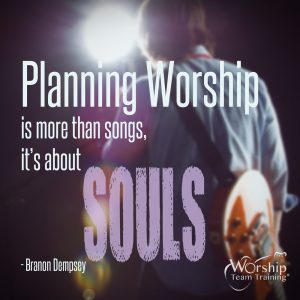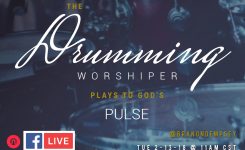Leaders, Ministry Leadership, Worship Leading, Worship Planning
Planning That Doesn’t Suck (Show #38)
 …And What You Can Do About It.
…And What You Can Do About It.
#MoreThanSongs (Video Below)
Songs help inspire, at the same time, they become new expressions of worship directed towards God. However, how do we know that the songs we choose are really building people? What ways can we explore the heart of the church, so that what we select become prayers of the Church?
1. Are You Building Songs Or Building People?
Adding to our list of songs expands the variety to the people in our church. New The way we organize and plan our songs have a direct impact on the way we lead / the way people follow in worship. This post will combine the spiritual side of song planning; and the practical side of song planning through Planning Center Online.
2. Spiritual Side of Song Planning
First, we need to look at our words of worship. As said before, songs are more than just notes from the page and sounds from our instruments and voices. Just as melodies reflect the heart, the words from our songs reflect our prayers. How can God use the power of song to help His people sing for joy? Here are some of my points for song and set selection:
3. Choose Songs With Good Theology
Locate some of the lyrics within the songs – perform a word search. Use Bible.com, while you’re there you can also see our profile and study our plans here:
WorshipTeamTraining @branondempsey http://bit.ly/1SKXIiZ Search the lyrics of the song, take two words and search Bible.com. See what passages surface, see how those same references are mirrored in other parts of Scripture. Try to find where those same words show up in the Psalms, Proverbs, and the Gospels.
See how they relate and overlap. When finding the few verses that really stick out to you, use that as a springboard for other song selections. In essence, you would match the same kind of theme, similar to how you are cross referencing verses in the Bible. As you move through each song and verse, you will find the Biblical origin and purpose. This should give you more biblical grounding when selecting songs, as well as finding the song’s backstory. Keep the music simple, make it well done and make it from the heart.
4. Pick Easy Melodies This is a very slippery slope.
Due to the plethora of songs, there are also countless melodies. Picking the right melody that people can follow is critical, otherwise people will just stop and stare. Find melodies that stay within an octave range. Play your selected song’s melody (from the chorus) on the piano or guitar. Do all the notes stay within that octave?In example middle ‘C’ to upper ‘C’ or ‘D’ to ‘D’? Do the melodies maybe stay in a five-six note range? Meaning that the melody stays around the same familiar 5-6 notes? Or does the melody move into different lower/higher octaves covering 10-12 pitches, wide skips in the ranges, or too many rhythms. Keep in mind, all the different ranges, multiple pitches and rhythms sound awesome in a recording, but that doesn’t mean your church will find them easy to follow. They may hum along in the car, but I don’t think every person can reach every note.
The difference is in the Church, we desire for them to sing every note and word / not just a few they can reach. When this happens and the church feels like they are losing, they will give up and disengage.
5. Select Words That Identify With The Church
Other songs from House Fires “Good, Good, Father,” expresses a heart-felt prayer like a child, basking in the faithfulness and thankfulness of God’s provision and comfort. Again, these are words and biblical concepts that people can both identify and follow. They also relate to where people are today in their walk with Jesus.
6. Select Songs That Are Simple
Music style is another issue: it must match your church’s demographic. If you are trying to rock-out in a rural church, it may not go over too well. Vice-versa, if you are doing country-style music in an urban gospel church, you may get chased out. Look out into your congregation, discover what music they listen to, find the cultural make-up of your church.
Match the music style accordingly, most of all, make the music sound like your church – not like someone else or what you hear off the radio. Planning is more than songs, it’s about souls.
@BranonDempsey @worshiptt
 Ever wondered what personal worship ministry mentoring, customized to fit your needs, would look like? Discover what Ministry Mentoring through Worship Team Training can do for you: Mentoring Program
Ever wondered what personal worship ministry mentoring, customized to fit your needs, would look like? Discover what Ministry Mentoring through Worship Team Training can do for you: Mentoring Program Copyright 2016 Worship Team Training®









